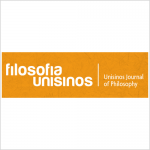Demoktesis: Property, rights, and democracy in Robert Nozick’s Anarchy, State and Utopia
Vol 17, No 2 (2016) • Filosofia Unisinos - Unisinos Journal of Philosophy
Autor: Felipe Schwember Augier
Resumo:
Demoktesis is one of the many hypothetical histories in Anarchy, State and Utopy. Here, Nozick not only aims to show that more than a minimum state can only emerge at the cost of violating some citizen’s rights, but he also intends to put forward a criticism of contemporary democracy. The core of this criticism is the claim that democracy entails a progressive loss of self-ownership. In Nozick’s view, this makes democracy a dystopic regime, akin to slavery. In this article I will attempt to pin down the meaning and the reach of this last criticism. I will claim, first, that it should be understood as aimed only against certain conceptions of democracy; and second, that this criticism is overstated, since these very forms of democracy promote many of the liberties defended by Nozick. I will conclude that Nozick’s criticism against these forms of democracy can be explained to a great extent by his reluctance to admit certain idealizations made by the defenders of democracy in demoktesis. This reluctance has consequences on the more general issue of the methodological pertinence of hypothetical histories and, with it, on the problem of the justification of the principles by which those histories are inspired.
ISSN: ISSN: 1984-8234
Texto Completo: http://revistas.unisinos.br/index.php/filosofia/article/view/fsu.2016.172.02
Palavras-Chave: Nozick,utopia,dystopia,democracy,natural righ

Filosofia Unisinos - Unisinos Journal of Philosophy
The journal Filosofia Unisinos - Unisinos Journal of Philosophy is published once every four months by Universidade do Vale do Rio dos Sinos.
Articles must be original, unpublished, and not under consideration for publication anywhere else and can be written in Portuguese, English or Spanish
Filosofia Unisinos - Unisinos Journal of Philosophy prints articles, translations and critical book reviews. It also reprints papers that are considered fundamental to the area when authorized written permission is given by the original publisher.
